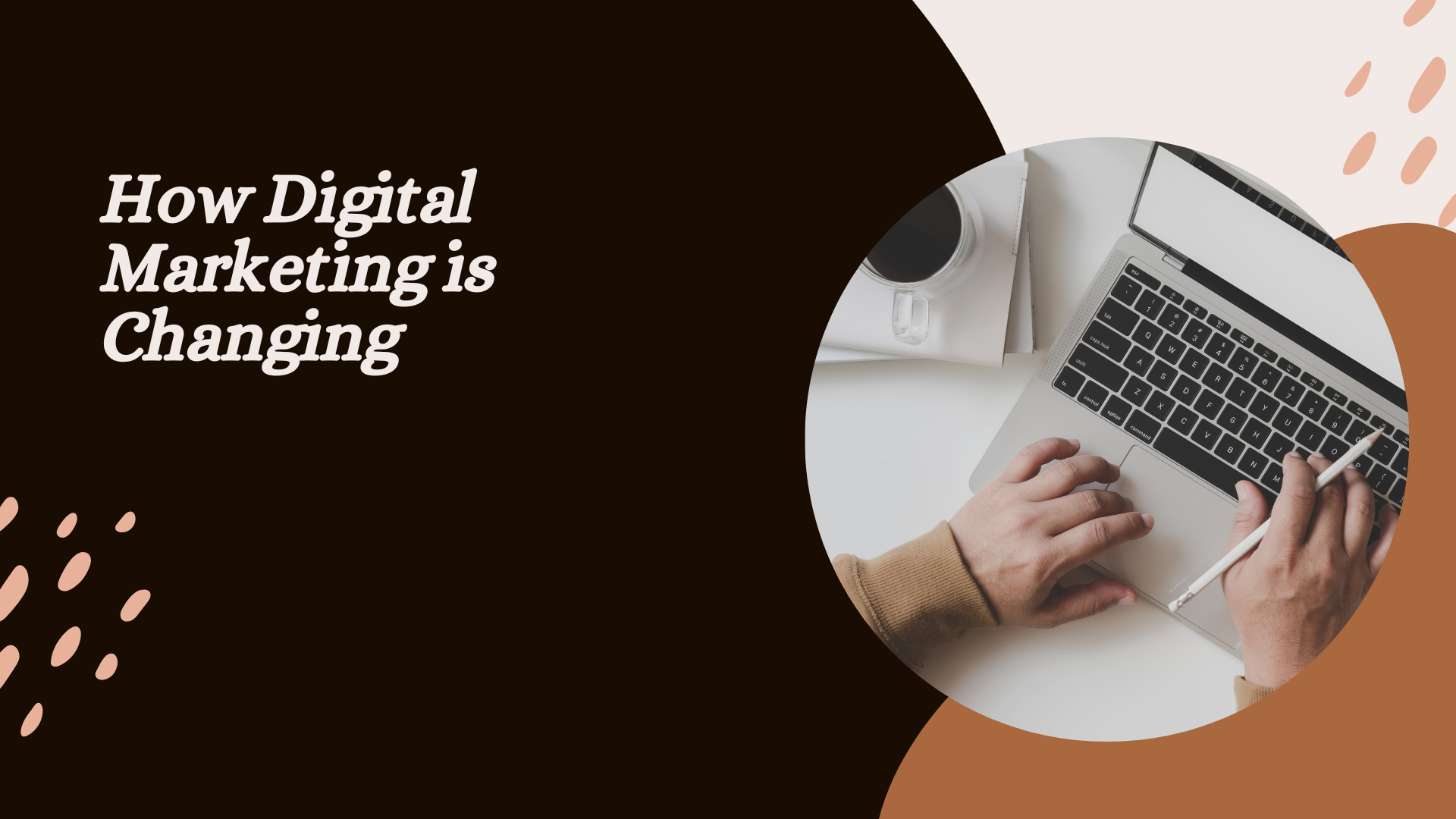In the rapidly evolving landscape of business and technology, the realm of marketing has undergone a revolutionary transformation with the advent of digitalization. The concept of digital marketing, encompassing a wide array of strategies and techniques, has brought about unprecedented changes in the way businesses promote their products and services. In this era of connectivity, where the digital realm is intertwined with everyday life, understanding how digital marketing is changing is crucial for businesses aiming to stay ahead in the competition.
The Evolution of Digital Marketing
Digital marketing is not just a buzzword; it’s a dynamic force that has reshaped the marketing ecosystem. From its humble beginnings as banner ads on websites, digital marketing now encompasses a myriad of tools such as social media, search engine optimization (SEO), content marketing, influencer collaborations, email campaigns, and more. This evolution has been swift, as businesses strive to keep up with consumer behavior that’s increasingly inclined toward online interactions.
The Data-Driven Approach
One of the most profound ways in which digital marketing is changing lies in its data-driven approach. Unlike traditional methods where businesses had limited insights into their audience’s behavior, digital marketing allows for the collection and analysis of vast amounts of data. This data can be leveraged to understand consumer preferences, track engagement, measure ROI, and fine-tune strategies in real time. Businesses now have the power to make informed decisions backed by concrete data, leading to more effective campaigns.
Personalization: A Game-Changer
Gone are the days of one-size-fits-all marketing messages. Digital marketing has introduced a new era of personalization. With the help of data analytics and AI algorithms, businesses can tailor their content and offerings to suit individual customer preferences. Whether it’s suggesting products based on past purchases or addressing customers by their names in emails, personalization fosters a stronger bond between businesses and their target audience.
The Power of Social Media
Social media has emerged as a juggernaut in the realm of digital marketing. Platforms like Facebook, Instagram, Twitter, and LinkedIn have become more than just avenues for personal connection – they are now powerful marketing tools. Businesses can directly interact with their customers, run targeted ad campaigns, and even leverage user-generated content to enhance brand credibility. The real-time nature of social media allows for instant feedback and response, creating a dynamic channel for customer engagement.
Search Engine Optimization in the Digital Age
Search Engine Optimization, or SEO, has witnessed a seismic shift in the digital era. With search engines becoming the go-to source of information, businesses are vying for that coveted top spot in search results. The focus has shifted from keyword stuffing to providing high-quality, relevant content that genuinely answers users’ queries. Additionally, local SEO has gained prominence due to the surge in mobile searches, allowing businesses to tap into local markets effectively.
Content is King
In the digital marketing landscape, content has rightfully earned its crown. Compelling and valuable content is not just a means of conveying a message; it’s a tool for building trust and authority. From blog posts and videos to infographics and podcasts, businesses are diversifying their content formats to cater to different audience preferences. Moreover, content marketing plays a pivotal role in SEO, driving organic traffic and improving search rankings.
Rise of Influencer Culture
Influencer marketing has emerged as a novel way to connect with audiences. Social media influencers, who have amassed dedicated followings, collaborate with brands to promote products authentically. This taps into the influencer’s rapport with their audience, making the marketing message more relatable. It’s a symbiotic relationship – influencers get to monetize their influence, while businesses get to tap into a ready-made, engaged audience.
Mobile Revolution
The proliferation of smartphones has redefined how digital marketing strategies are devised. Mobile devices have become the primary mode of accessing the internet for a significant portion of the population. As a result, businesses are optimizing their websites and content for mobile responsiveness. Mobile apps, too, offer a direct channel for customer interaction, allowing for personalized notifications, offers, and a seamless user experience.
The Role of AI and Automation
Artificial Intelligence (AI) and automation have injected a new level of efficiency into digital marketing. Chatbots handle customer queries 24/7, personalized recommendations are generated by algorithms, and email campaigns can be triggered based on user behavior. This not only saves time but also enhances the customer experience by providing instant responses and relevant content.
E-Commerce Transformation
Digital marketing has revolutionized the e-commerce landscape. Online shopping is no longer confined to specific websites; social media platforms are integrating shopping features, allowing users to purchase products directly from posts. The rise of influencer-driven sales and the convenience of targeted ads have turned social media into a bustling marketplace.
The Global Reach
Digital marketing knows no geographical boundaries. Businesses can reach a global audience with a well-executed digital marketing strategy. This is particularly beneficial for small and medium-sized enterprises (SMEs) that might not have had the resources for international expansion through traditional means. The internet has democratized business promotion, giving everyone a chance to be seen on the global stage.
Ethical and Privacy Considerations
With great digital power comes great responsibility. The evolving landscape of digital marketing has raised ethical concerns regarding data privacy and transparency. Consumers are more aware of their rights and how their data is being used. As a response, businesses are adopting more transparent data practices and emphasizing the protection of user information. This shift highlights the need for ethical considerations in every facet of digital marketing.
Read More :- Best SEO Services in Noida
Conclusion
In the grand scheme of business evolution, the rise of digital marketing stands as a pivotal chapter. The transformation is ongoing, with emerging technologies like augmented reality, virtual reality, and blockchain poised to further reshape the landscape. Businesses that embrace these changes and adapt their strategies stand to thrive in this digital age. As we move forward, understanding how digital marketing is changing will remain essential, guiding businesses toward innovative methods of reaching and engaging their audiences.




